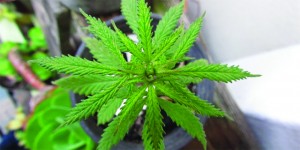With Governor Raimondo’s budget signed and in effect as of July 1, the medical marijuana landscape in Rhode Island has changed in many different ways. Below are some highlights that affect the program’s current and future patients.
Compassion Centers
Under the new legislation, patients no longer have to register with a compassion center to visit them. All patients are able to go to all three compassion centers, as well as have a personal caregiver. Going forward, patients will be limited to only one personal caregiver (previously two), but all current patient-caregiver relationships are intact until the patient’s card expires. This is big news for many patients who have wanted to try products offered at the centers, but didn’t have the $25 to $50 cost for the paperwork to register.
New Applications
Starting January 1, 2017, patient and caregiver cards will only be valid for one year (previously two). There has been no official word on whether the renewal cost will be reduced as well.
Patients submitting new applications who are on hospice or receiving chemotherapy will receive an acceptance or denial to their application within five days (most patients currently wait six to eight weeks) beginning January 1, 2017.
Growing
Patient and caregiver grows must now all be in one location (ie, you can’t have immature plants in one location and your mature plants somewhere else)
Caregivers and patients will no longer be able to sell to compassion centers beginning January 1, 2017.
Patients and caregivers also will be required to purchase plant tags for their immature and mature plants, at $25 per tag set. This is a drastic reduction from the governor’s original draft of the budget, which set the prices at $175 to $350 per set. Patients who qualify for reduced application fees from low income or disability will qualify to receive plant tags for free.
Extractions
Extracting with compressed, flammable solvents will no longer be protected under the medical marijuana umbrella. The legislation doesn’t specify solvents, but it definitely includes butane and possibly could include CO2 and ethyl alcohol.
New Licenses
Authorized purchaser licenses will allow an individual over the age of 21 to purchase on a patient’s behalf, much like caregivers do currently, but the license will not allow the individual to grow on behalf of the patient. Authorized purchasers must pass a national criminal records check, and are limited to one patient.
Cultivator licenses will allow an individual to grow specifically to sell to compassion centers. Details regarding plant count and applicant qualifications have not yet been specified by the Department of Business Regulation.
Revenue
Starting July 1, 2016, all fees collected will be placed in restricted receipt accounts to support only the medical marijuana program. This combined with the Department of Business Regulation sharing the work of managing the medical marijuana program with the Department of Health should create a more efficient and straightforward program.




The state is Grossly over charging for something people could have helped themselves with for almost nothing or free. Disgusting. I seriously dont even see a need for regulating it.